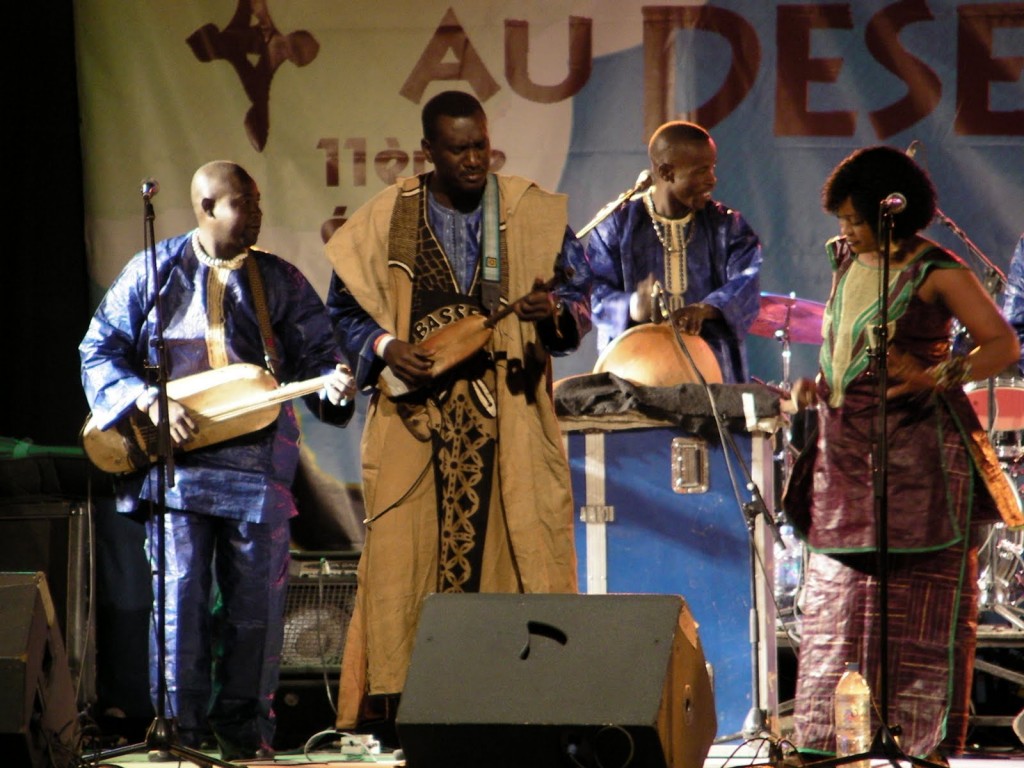Blog January 21, 2015
Longing For the Festival in the Desert
The horrific massacres in Paris recently recall similarly motivated atrocities committed in northern Mali in 2012-13. In both cases fanaticism and intolerance attacked freedom of artistic expression and religious beliefs. Extremists in Mali banned all forms of music and threatened musicians' lives, forbidding performances, destroying instruments, and even seizing records from radio stations and cell phones with musical ringtones. The ensuing war between radical Islamists and French troops throughout the northern region of the country in 2013-14 forced the cancellation of the Festival au Desert, held since 2001 near Timbuktu. (You can check out Afropop's visit to the festival here and here.)
With the situation more or less resolved last year, the festival was bravely planning to resume in 2015, and scheduled for Jan. 8-10. But its future is once again uncertain. Under the banner of "Still in Exile," it has been reimagined as a kind of moveable fest, the Cultural Peace Caravan, in cooperation two other North African festivals. The tour begins this weekend, at Morocco's Festival Taragalte on Jan. 23-25, continues on to the Festival on the Niger in Segou, Mali, Feb. 4-8; and is scheduled for Mopti, Feb. 12-13, and a grand finale in Bamako on Feb. 21.
For more information, see festival-au-desert.org and festivalsegou.org/2015/english/le-festival/caravane-culturelle-pour-la-paix/
In the face of the calamitous situation, Bassekou Kouyate, the Malian virtuoso of the traditional four-stringed ngoni, has recorded a heartfelt song, "Desert Nianafing (Longing for the Desert)." With the fate of the once and future festival in question, he acknowledges and celebrates the different cultures and peoples encompassed within the nation of Mali.
"Desert Nianafing" is built on the now-familiar hypnotic desert rhythm familiar from so many Tuareg recordings, gently rocking at a camel's pace. The ensemble, made up of Amy Sacko, Afel Bocoum and Ahmed Ag Kaedi, represents unification of various areas of Mali, which was virtually split in two during the conflict. Ahmed, from the northern town of Kidal, escaped to Bamako when Islamists invaded his home, burned his instruments and threatened him with death if he continued to play music. Guitarist Bocoum, an associate of the late Ali Farka Toure, hails from the eastern town of Niafunke, on the banks of the Niger River, which also was affected by the war. Bassekou and the lovely Amy Sacko, whose voice shines in the opening phrases of the song, are from Bamako, in the south.
Bassekou Kouyate is scheduled to perform at the Segou festival and has a new album to be released soon. In the meantime, we have this fervent yearning for the time when the desert was home, a place of serenity and creativity, and the deep longing for the universal healing power of music.









